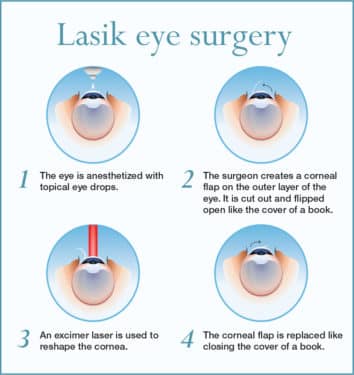The Thorough FAQ On Refractive Lens Exchange: Whatever You Must Hear Concerning
The Thorough FAQ On Refractive Lens Exchange: Whatever You Must Hear Concerning
Blog Article
Authored By-Lundqvist Byers
If you're thinking about refractive lens exchange, you probably have a lot of questions. This procedure could transform how you see the globe, providing benefits like decreased reliance on glasses. Nonetheless, it's vital to recognize the procedure, dangers, and that certifies as a great candidate. Allow's discover these crucial facets so you can make an informed decision concerning whether RLE is right for you.
What Is Refractive Lens Exchange and How Does It Function?
Refractive lens exchange (RLE) is a surgical procedure created to replace your eye's natural lens with a synthetic one, fixing vision concerns like nearsightedness, farsightedness, or presbyopia.
During the procedure, your cosmetic surgeon makes a little incision in the eye, removes your natural lens, and inserts an intraocular lens (IOL) customized to your vision needs. Cataract Surgery How Long Does It Take To Heal takes around 15 to thirty minutes per eye and is performed under regional anesthetic.
You'll likely discover enhancements in your vision almost quickly, though complete recovery might take a couple of weeks. RLE is especially advantageous for those over 40 or with high prescriptions, offering a lasting service compared to glasses or get in touch with lenses.
Your eye treatment professional can assist identify if RLE is right for you.
What Are the Benefits and Threats of Refractive Lens Exchange?
Selecting refractive lens exchange can cause substantial enhancements in your vision, but it's important to weigh both the benefits and risks prior to making a decision.
On the plus side, this procedure can boost your vision by dealing with issues like presbyopia, nearsightedness, and hyperopia. Lots of clients take pleasure in decreased dependancy on glasses or contact lenses, which can greatly enhance their quality of life.
Nonetheless, it's critical to think about possible risks. Problems can include infection, glare, or halos around lights.
There's also an opportunity of overcorrection or undercorrection, which might need added procedures.
That Is an Ideal Prospect for Refractive Lens Exchange?
If you're considering refractive lens exchange, it's important to understand whether you fit the profile of an excellent prospect. Usually, you might be a good candidate if you're over 40, experience presbyopia, or have high levels of nearsightedness or farsightedness.
It's also critical that your vision is stable, suggesting your prescription hasn't transformed considerably in the past year. If you have cataracts or other eye conditions, you might take advantage of this procedure as well.
However, particular factors, like unchecked diabetes mellitus or autoimmune illness, can disqualify you. To identify your candidateship, consult with an eye treatment professional who can assess your details scenario and recommend the very best strategy tailored to your demands.
Conclusion
Finally, refractive lens exchange can be a transformative option for enhancing your vision, especially if you're over 40 or have a high prescription. While the advantages are considerable, it's important to evaluate the threats and consult with your eye care specialist to figure out if you're a perfect prospect. With Cataract Surgery Equipment and advice, you can make an informed choice and possibly enjoy a life with minimized dependence on glasses.
